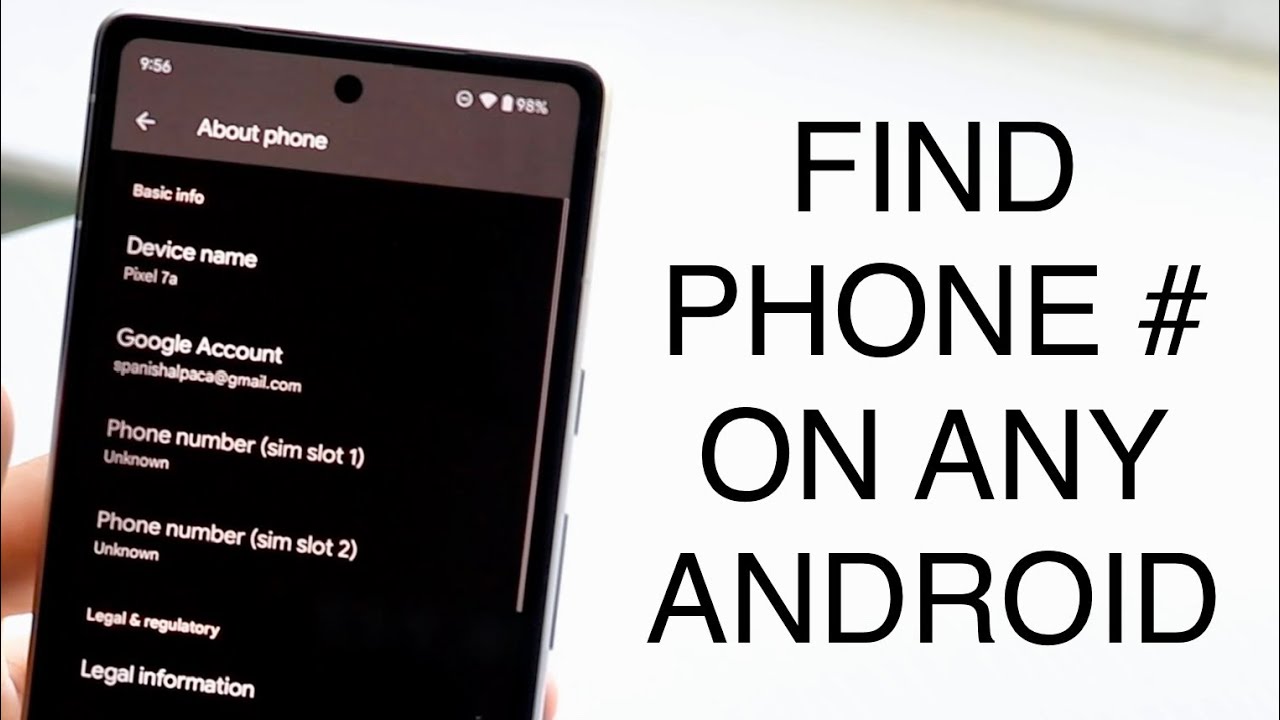How to Find Phone Owner by IMEI Number: Finding the owner of a phone using its IMEI (International Mobile Equipment Identity) number This process can be crucial in various scenarios, such as recovering a lost or stolen device. The IMEI is a unique identifier assigned to every mobile device, serving as its digital fingerprint. It consists of 15 to 17 digits and can often be found on the device itself or through the settings menu.
When a phone is reported lost or stolen, the IMEI number can be used by law enforcement and service providers to track the device and potentially identify its owner. Some online services also claim to help locate devices using IMEI, but users should exercise caution, as many of these services may not be legitimate or secure.
It’s essential to understand that accessing personal information related to an IMEI number may be subject to legal restrictions and privacy laws. Therefore, using official channels—such as contacting your mobile carrier or local authorities—is often the safest and most effective method for locating a phone’s owner. Overall, while the IMEI number is a powerful tool for device identification and recovery, responsible use and respect for privacy are paramount.
Read Also: How to Know Who Blocked Me on Grindr
How IMEI Numbers Work: Understanding Their Role
The IMEI number is a unique identifier for mobile devices, playing a critical role in telecommunications. Comprising 15 to 17 digits, the IMEI serves multiple purposes that enhance device security and network management.
- Device Identification
Each IMEI number is unique to a specific device, allowing mobile networks to identify and authenticate it when connecting to their services. This ensures that the network can track usage and manage resources effectively.
- Tracking Lost or Stolen Devices
When a phone is reported lost or stolen, the carrier can block its IMEI. Making it less valuable to thieves and aiding in its recovery.
- Network Management
Carriers use IMEI numbers to manage devices on their networks. They can track usage patterns, assess service quality, and monitor for fraudulent activity, ensuring a smoother experience for legitimate users.
- International Standards
The IMEI system is standardized globally, which means that regardless of the carrier or country, the IMEI remains consistent. This universality is essential for international roaming and cross-border device tracking.
- Privacy and Security Considerations
While IMEI numbers are vital for device management, they also raise privacy concerns. Unauthorized access or tracking of an IMEI can lead to misuse, highlighting the need for robust regulations and responsible handling of this information.
Understanding the role of IMEI numbers is crucial for both consumers and industry professionals, as they play a significant part in enhancing device security and ensuring efficient network operations.
Steps to Locate a Lost or Stolen Phone Using IMEI
If you’ve lost your phone or it has been stolen, using the IMEI number can be an effective way to track it down. Here’s a step-by-step guide on how to locate your device:
Find Your IMEI Number
- If you still have access to your phone, you can find the IMEI by dialing *#06#.
- If the phone is lost, check the original box, purchase receipt, or your carrier’s account, where the IMEI may be listed.
Report the Loss to Your Carrier
- The loss or theft. Could you provide them with the IMEI number?
- Request them to block the IMEI, which will prevent the device from being used on their network.
File a Police Report
- Bring the IMEI number and any proof of ownership.
- This report can be crucial for tracking the device and for insurance claims.
Use Online Tracking Services
- Some online services and apps claim to help track phones using IMEI. However, be cautious and use only reputable services.
- Official services like “Find My Device” for Android or “Find My iPhone” for Apple may also provide location tracking if set up beforehand.
Monitor Social Media and Online Marketplaces
- Keep an eye on platforms like eBay or Craigslist, where stolen phones might be sold. If you spot your device, inform law enforcement rather than confronting the seller.
Notify Your Insurance Company
- Please provide them with the police report and IMEI number.
Check with Local Authorities
- Follow up with local law enforcement about any updates or leads regarding your stolen phone. If available, provide them with any additional information.
Change Account Passwords
- To protect your personal information, change passwords for any accounts linked to your device, such as email, social media, and banking apps.
Increase your chances of recovering your lost or stolen phone by effectively using the IMEI number.
Common Myths About IMEI Number Tracking
The IMEI number is often shrouded in misconceptions, leading to confusion about its capabilities and limitations. Here are some common myths about IMEI number tracking:
Myth: IMEI Can Always Locate a Phone
- Reality: While the IMEI can help track a phone, it requires cooperation from the mobile carrier and is not a standalone tracking tool. If a device is turned off or not connected to a network, its location cannot be determined.
Myth: Anyone Can Track a Phone Using the IMEI
- Reality: You can access a phone’s location through its IMEI and mobile carriers. Unauthorized tracking is illegal and unethical.
Myth: IMEI Tracking is Always Accurate
- Reality: IMEI tracking relies on network signals, which can vary in accuracy. Urban environments may provide better monitoring due to more cell towers, while rural areas may have less reliable signals.
Myth: Blocklisting an IMEI Completely Renders the Phone Useless
- Reality: Blocking an IMEI prevents it from connecting to the original carrier’s network, but the phone may still work with other networks unless they also block the IMEI.
Myth: IMEI Can Be Easily Changed or Spoofed
- Reality: Changing an IMEI is illegal in many jurisdictions and often requires sophisticated technical skills. While it is possible, it is a rare practice among average users.
Myth: All IMEI Tracking Services are Legitimate
- Reality: Many online services claiming to track phones by IMEI are scams. Users should be cautious and rely on official channels for IMEI-related inquiries.
Myth: IMEI Numbers Are Only Relevant for Stolen Phones
- Reality: IMEI numbers are crucial for various purposes, including network management, device authentication, and fraud prevention, making them essential even for legitimate users.
Understanding these myths can help users make informed decisions about how to approach phone tracking and recovery using IMEI numbers.
Frequently Asked Questions
Can an IMEI number be changed?
Changing an IMEI number is illegal in many places and typically requires specialized knowledge, making it uncommon among everyday users.
Can I recover my stolen phone using online services?
Some online services claim to track phones via IMEI, but many are scams. It’s safest to rely on your carrier or law enforcement for recovery.
What happens if I block my IMEI number?
Blocklisting prevents the device from connecting to the carrier’s network, making it unusable for calls or data, but it may still function on other networks.
How accurate is IMEI tracking?
IMEI tracking accuracy depends on network signals and coverage; it can vary based on location and device status (e.g., turned off or out of range).
Who owns a phone with just the IMEI number?
Privacy laws safeguard personal information associated with an IMEI number, ensuring that only authorized entities, such as law enforcement and mobile carriers, have access to it.
Conclusion
Finding the owner of a phone using its IMEI number is a valuable process for recovering lost or stolen devices. The IMEI serves as a unique identifier, enabling mobile carriers and law enforcement to track and manage devices on their networks. At the same time, the IMEI can be instrumental in preventing unauthorized use and assisting in device recovery involved in its use. Relying on official channels, such as your mobile carrier and local authorities, is the safest approach when attempting to locate a phone owner.

